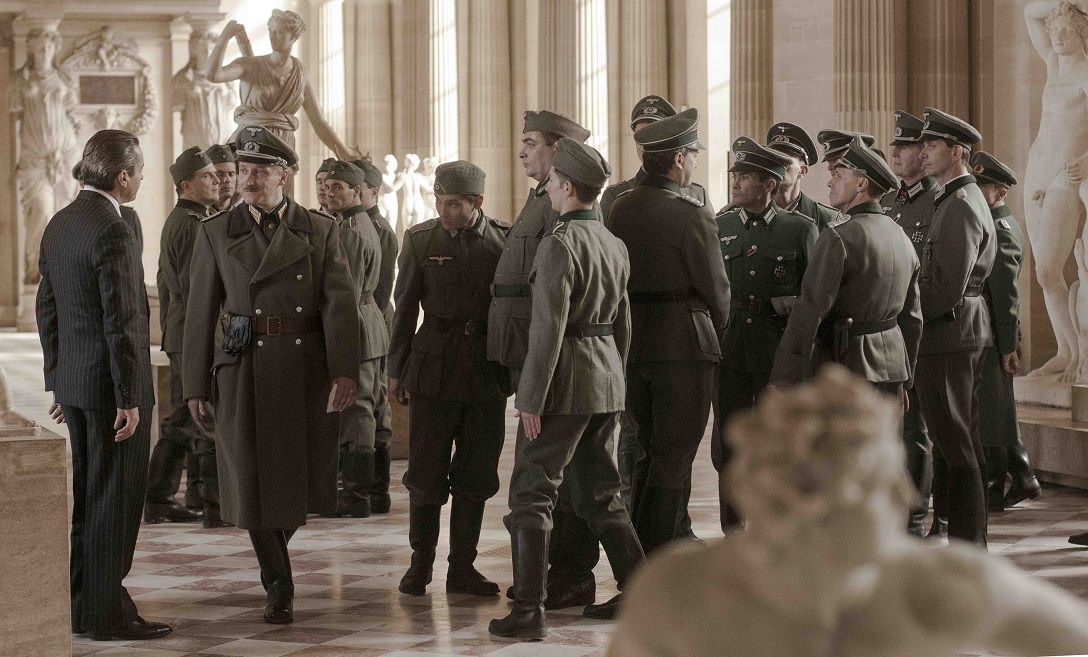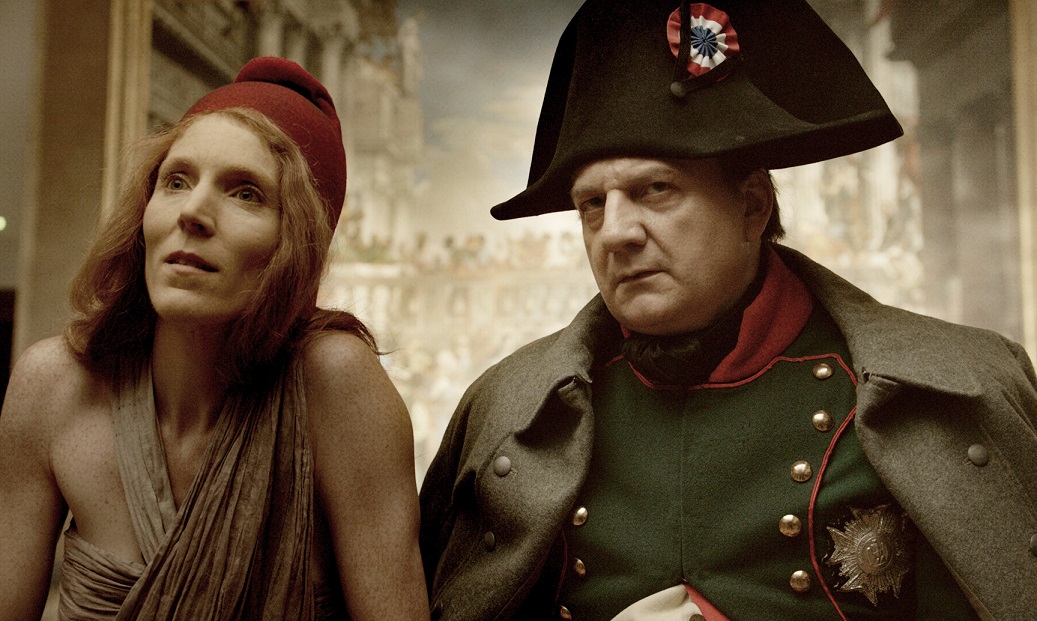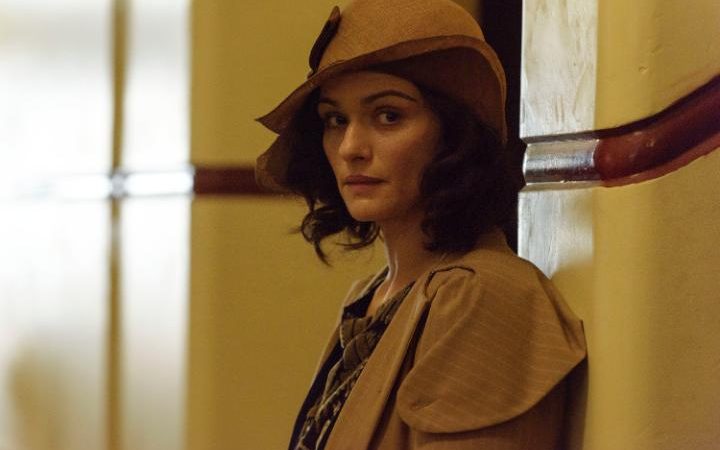Name seven students in Ravenclaw. Which 14 subjects are on the syllabus at Hogwarts? Create a shopping list of 20 different types of magical sweet. In her Harry Potter stories JK Rowling conjured up an almanack of wizarding facts and figures which, for parents, proved extremely useful during long car journeys or steep mountain climbs (even if this parent didn’t know all the answers). A handy staple was “List 16 magical creatures”. It would keep them going for hours because, if memory serves, Rowling created only 14 of them.

Jim Jarmusch has made a memorial to the Stooges, more than a celebration of their brutal prime. His Zen rhythms, which roll so movingly through the upcoming Paterson, aren’t entirely equipped for the blunt trauma of Ron Asheton’s guitar, or Iggy Pop’s penchant for sultry chaos. He’s barely adequate journalistically on the band’s early years, but is on hand for their death, as hard living leaves almost no Stooge standing.

Paul Schrader is one of those filmmakers who critics really want to love. Not only is he responsible as a writer for at least two masterpieces – Taxi Driver and Raging Bull – he’s also the director of such great films as Mishima, American Gigolo and Light Sleeper.

Ewan McGregor has been judged unworthy of adapting Philip Roth in the US. But his directorial debut is finely crafted, and powered by visceral emotion embodied in one of his best performances. As Seymour “Swede” Levov, he’s an All-Jewish-American hero, living the 1950s dream, till the 1960s bring it crashing down. His beloved daughter Merry (Dakota Fanning, pictured below right) is the agent of his destruction, in a one-sided generation war unusually seen from the straight-edged parents’ side.

The Russian director Alexander Sokurov has never been afraid of tackling weighty, often philosophical issues head on, and his latest film Francofonia is as pioneering – and, some might say, unnecessarily uncompromising – as ever. It’s nothing less than a meditation on civilisation, its potential for preservation or destruction, and history, seen through the prism of Paris's Louvre. Stretching, and evading, the conventions of both documentary and fiction, it’s perhaps best considered as an art project in itself.
Sokurov’s cinematic fascination with the museum as a concept stretches back to his remarkable 2002 Russian Ark, a single-take engagement, at just over an hour and a half, with 300 years of Russian history that was filmed in the Hermitage in St Petersburg. Technically ground-breaking, it brought to the fore the interrelationship between the museum as a repository of history, and as a space in itself, in which history unfolds. (Interestingly, it seems to have spawned a new sub-species of cinema – from Johannes Holzhausen’s The Great Museum to Frederick Wiseman’s National Gallery – investigating the museum as an entity in itself, with all its various accretions of cultural and human history.)
It feels too much like a metaphor imposed from outside
The Louvre duly followed the Hermitage in opening its doors, developing the programme “Louvre Invites Filmmakers” which sought “unusual, non-institutional views of the building, the collections, and the institution itself”, which made Sokurov’s appearance there completely natural. Francofonia is certainly “non-institutional”, mixing as it does an eclectic variety of elements. Its most direct level involves dramatic reconstruction of the life of the Louvre during wartime German occupation of Paris, and a story concentrating on the relationship between its then director, Jacques Jaujard (played here by Louis-Do de Lencquesaing), and the German officer Count Wolff Metternich (Benjamin Utzerath) who was the Nazi cultural overseer for France.
Beginning as formal, distant players on opposing sides, these two highly cultured contemporaries somehow become united by a shared determination to secure the Louvre’s collection. Shortly before the outbreak of war, everything except some sculpture had been evacuated into storage in chateaux cellars around France, and ultimately it was in no small part Metternich’s achievement that so little was removed as trophy plunder to Germany. Those two historical figures, living in their clearly defined moment, are joined by another couple, less directly but somehow more organically connected to locus. Stalking the museum’s halls Sokurov gives us the memorable pairing of the Emperor Napoleon (Vincent Nemeth) – responsible, of course, for much of the enlargement of the Louvre’s collection, as well as its establishment as a public gallery – intoning periodically “C’est moi”; and the tricolour personification of France herself, Marianne (Johanna Korthals Altes), visually appropriated from Delacroix’s Liberty Leading the People, with her chant of Liberté, égalité, fraternité. In one scene, the two of them ponder the Mona Lisa: not the least advantage of having unfettered, after-hours access to a great space like this is the chance to see it without any other visitors. (Pictured below left: Johanna Korthals Altes, Vincent Nemeth.)
Those two historical figures, living in their clearly defined moment, are joined by another couple, less directly but somehow more organically connected to locus. Stalking the museum’s halls Sokurov gives us the memorable pairing of the Emperor Napoleon (Vincent Nemeth) – responsible, of course, for much of the enlargement of the Louvre’s collection, as well as its establishment as a public gallery – intoning periodically “C’est moi”; and the tricolour personification of France herself, Marianne (Johanna Korthals Altes), visually appropriated from Delacroix’s Liberty Leading the People, with her chant of Liberté, égalité, fraternité. In one scene, the two of them ponder the Mona Lisa: not the least advantage of having unfettered, after-hours access to a great space like this is the chance to see it without any other visitors. (Pictured below left: Johanna Korthals Altes, Vincent Nemeth.)
As the film’s narrator, Sokurov is himself – literally – caught up in both strands: he is equally observer, the eye of the camera if you like, and participant, engaged in dialogue with the characters, as well as with the space itself, the works in its collection, and its history. He creates the story that tells us how it all started, how the building grew and its galleries developed, all illustrated through depictions of that process in works of art from the collection itself.
 He also weaves in a third truly varied element, best described as philosophical meditation, which is by some distance the hardest thing to describe about Francofonia. It ranges from invocations to the icons of Sokurov’s own cultural world such as Tolstoy and Chekhov, to a digression on the very different wartime fate of the director’s home city, St. Petersburg/Leningrad. The wartime devastation wrought by the Nazis on their Eastern front is set against the apparent tranquillity – although it is very much a selective tranquillity, from which many of the actualities of the time (most acutely, the fate of France’s Jewish population) have been banished – with which Paris engaged with her occupiers.
He also weaves in a third truly varied element, best described as philosophical meditation, which is by some distance the hardest thing to describe about Francofonia. It ranges from invocations to the icons of Sokurov’s own cultural world such as Tolstoy and Chekhov, to a digression on the very different wartime fate of the director’s home city, St. Petersburg/Leningrad. The wartime devastation wrought by the Nazis on their Eastern front is set against the apparent tranquillity – although it is very much a selective tranquillity, from which many of the actualities of the time (most acutely, the fate of France’s Jewish population) have been banished – with which Paris engaged with her occupiers.
And behind that is Sokurov’s most abstract concern of all, his meditation on the fragility of civilisation – our culture, in the broadest sense – in history. To convey this he introduces himself in his everyday life: we see the director in his study, engaged in a film project, as well as in skype conversations with a friend, the captain of an ocean-going container ship that is transporting, among other things, items from a museum collection, through a perilously stormy sea.
Literally, as we see huge waves break over the bow of the vessel, this cultural freight is at risk (it’s symbolically linked to Géricault’s The Raft of the Medusa, too). It’s a rich mix, but this last element is somehow the least persuasive: or rather, it demands a total commitment, on Sokurov’s terms alone, which viewers may not be ready to make. It feels too much like a metaphor imposed from outside on the structure of an already heterogenous film, making it solipsistic almost to the point of pretension.
The variety of technical forms that Sokurov and his cinematographer Bruno Delbonnel employ is every bit as diverse, but the result there is endlessly fascinating: the textures and hues, patinaed or distressed with age, sound strips and other elements left visible – it all comprises a work of art in itself. It’s a visually sombre film, combining pellucid black and white archive footage of Paris of the period with human encounters filmed in faded, treated colours. Murat Kabadokov’s score is, if anything, even more impressive: it rumbles richly throughout the film before dominating its final minutes – there are no end-credits where we would expect them – with a demonic riff on the Soviet (now Russian, too) national anthem. Mannerism seems the right term: if on the visual and audio side, Francofonia’s experiments in that direction never tire, the same cannot always be said of the content. A curio, albeit a fascinating one.
Overleaf: watch the trailer for Francofonia

While the world goes to hell in a handbasket, it’s faintly reassuring to imagine that there might be some intelligent life form out there beyond the stars that’s just waiting to land on our planet and make us all love one another – or swiftly put us out of our squabbling misery, once and for all. This familiar story – from The Day the Earth Stood Still, through Close Encounters and Independence Day, to Mars Attacks – is reworked for adults with a philosophical bent in Arrival.

Tom Ford steps up to the celluloid big leagues with Nocturnal Animals, a deeply disquieting film that resists classification

You could begin to wonder if The Accountant is part of a game of one-upmanship between Ben Affleck and his old buddy Matt Damon. If Matt can strike it big with Jason Bourne, the amnesiac super-lethal assassin, Ben can go one better – Christian Wolff, an autistic accountant and super-lethal assassin!

Cats on film. There are plenty of them. Elsewhere on the web you will find loads of listicles featuring top cats, boss pussies, big mogs, killer kitties, whiskers galore and other such. Cats get their biggest billing of all in the wonderful if anthropomorphic world of Walt Disney. It’s rare for a cat to be played by a cat in a film about a cat. Cat people will be purring, therefore, at A Street Cat Named Bob.

Michael Fassbender and Alicia Vikander fell in love in real life while making The Light Between Oceans, which lends an extra dimension to a morose period weepie that needs every bit of excitement it can get. Reminiscent of the laboured celluloid romances of a bygone era that could once have starred Robert Taylor, the film is as vacuous as it is pretty, and if director Derek Cianfrance cut some of his stars' lingering glances, it would have the added virtue of being short.
As it is, 132 minutes is a long time for a movie whose narrative more or less demands that the audience is several steps ahead of the game. Adapted from the 2012 book of the same name by the London-based Australian novelist M.L. Stedman, the film might benefit from a bit of self-awareness as to its hoarier aspects: one can imagine Todd Haynes having a high old time with it.
But in a break from the bristling intelligence of his career-making Blue Valentine, this latest effort finds Cianfrance going all po-faced on us. Only the belated entrance into the action of Rachel Weisz (pictured below), playing the real mother of the child whom Vikander's luckless spouse and parent has brought up as her own, brings the much-needed juice - not to mention respite from lines like "you still have a light inside of you".  The narrative - ripe for parody - finds Fassbender playing a battle-scarred survivor of World War One who finds the calm he has been looking for in a job as a lighthouse keeper in a rural Australian outpost. Any thoughts of him idling the decades away humming "Waltzing Matilda" to the gulls are soon routed by the appearance of Isabel (Vikander), who knows a thing or two about war's ravages, having lost two brothers to combat.
The narrative - ripe for parody - finds Fassbender playing a battle-scarred survivor of World War One who finds the calm he has been looking for in a job as a lighthouse keeper in a rural Australian outpost. Any thoughts of him idling the decades away humming "Waltzing Matilda" to the gulls are soon routed by the appearance of Isabel (Vikander), who knows a thing or two about war's ravages, having lost two brothers to combat.
Several lingering glances over a prolonged lunch lead to - well, you know - and before long Tom and isabel are man and wife, only for fate to deal her a cruel blow via not one but two miscarriages. And yet, just when Isabel seems destined to succumb to despair, a boat washes up on the shore, bringing with it a dead man and a very much alive, squawling infant girl. Suddenly there's God so quickly, as Blanche DuBois might have said, except for the emergence of Hannah (Weisz), the child's real mum, whose arrival on the scene recasts the movie as a study in morality: Tom and Isabel don't see eye to eye as what to do with Lucy once her actual mother forces a day of reckoning.
Weisz's energy seems to belong to a different film. Elsewhere, one thinks for instance of what the Mike Leigh who gave us Secrets and Lies might have done with the ensuing moral maze and the primal emotions that get unleashed. Instead, Fassbender retreats inward - the performance is recessive to a fault - while Vikander aims for the jugular, the two rarely suggesting on screen the passion that was reportedly aborning off it. We are treated to the requisite picturesque longshots and dewy close-ups, and yet the thing never connects. Instead of reaching for a tissue, I was checking my watch.
Overleaf: watch the trailer to The Light Between Oceans

